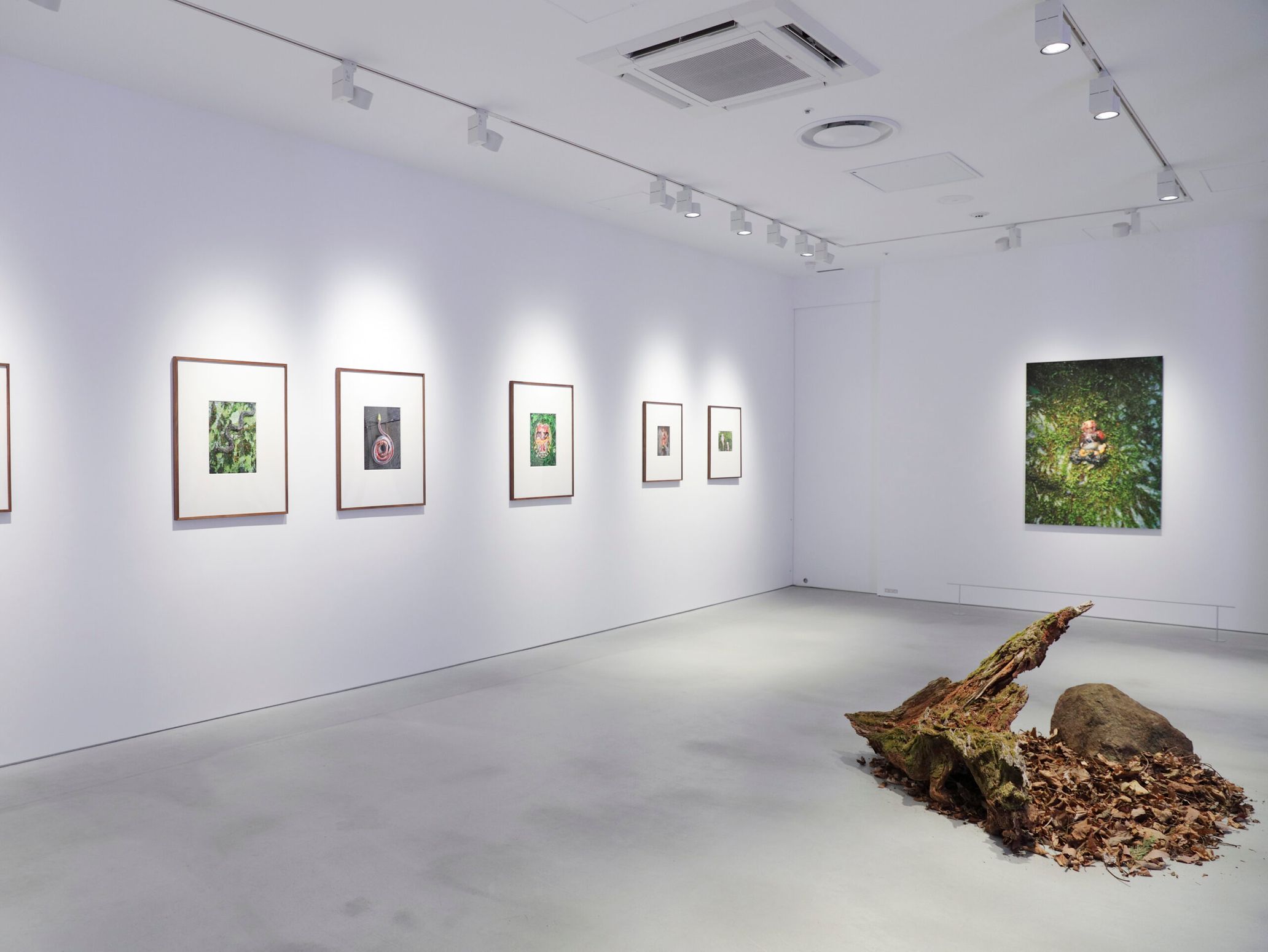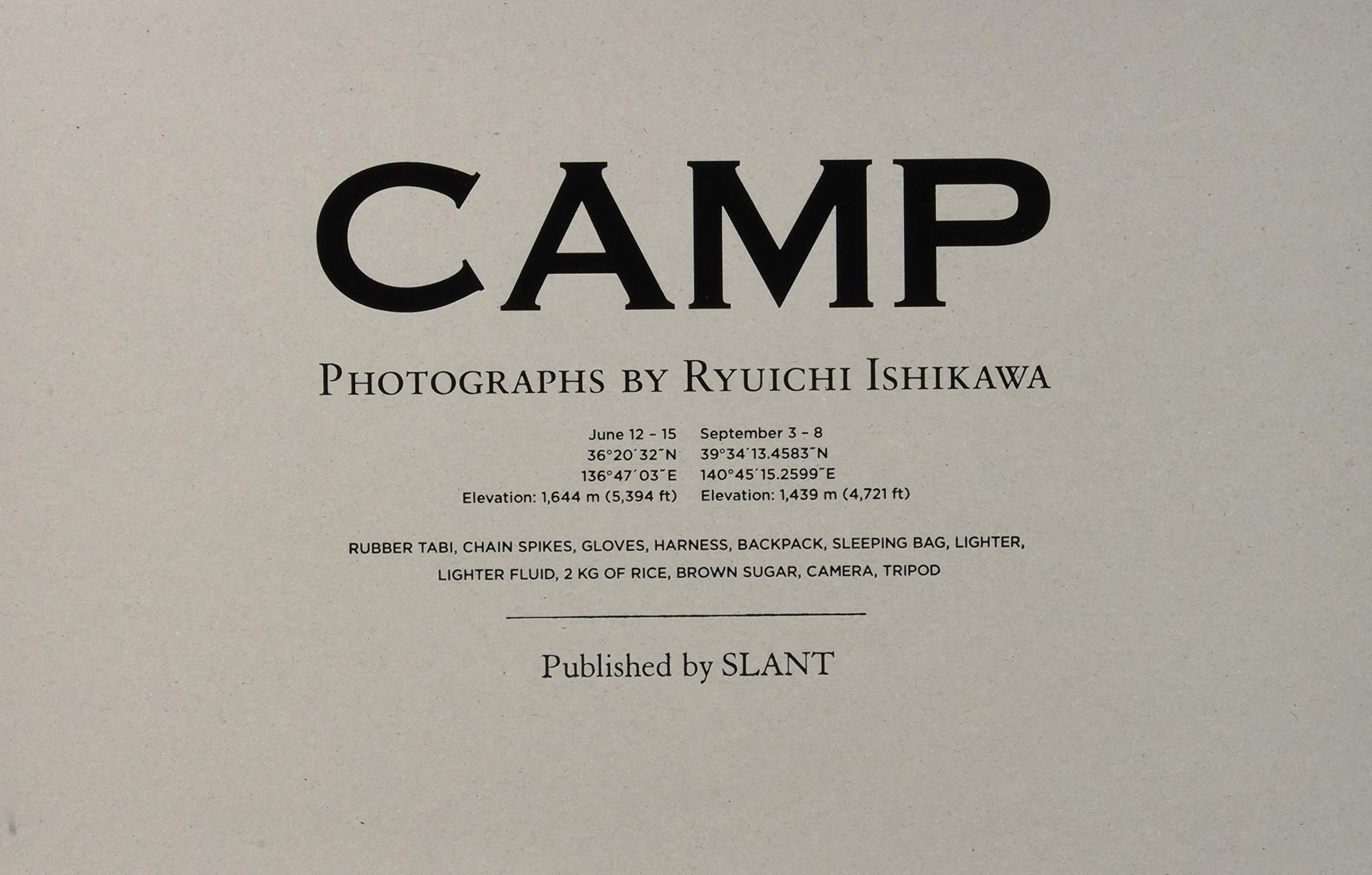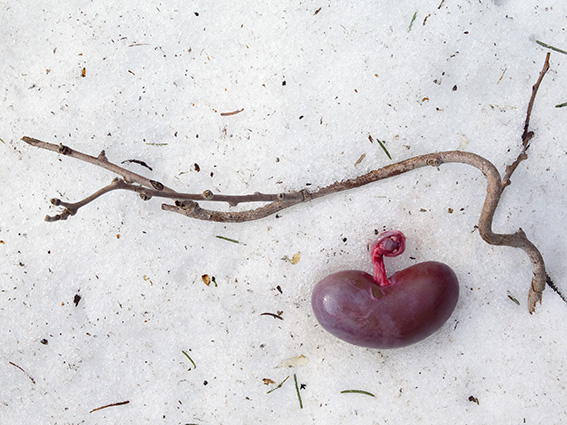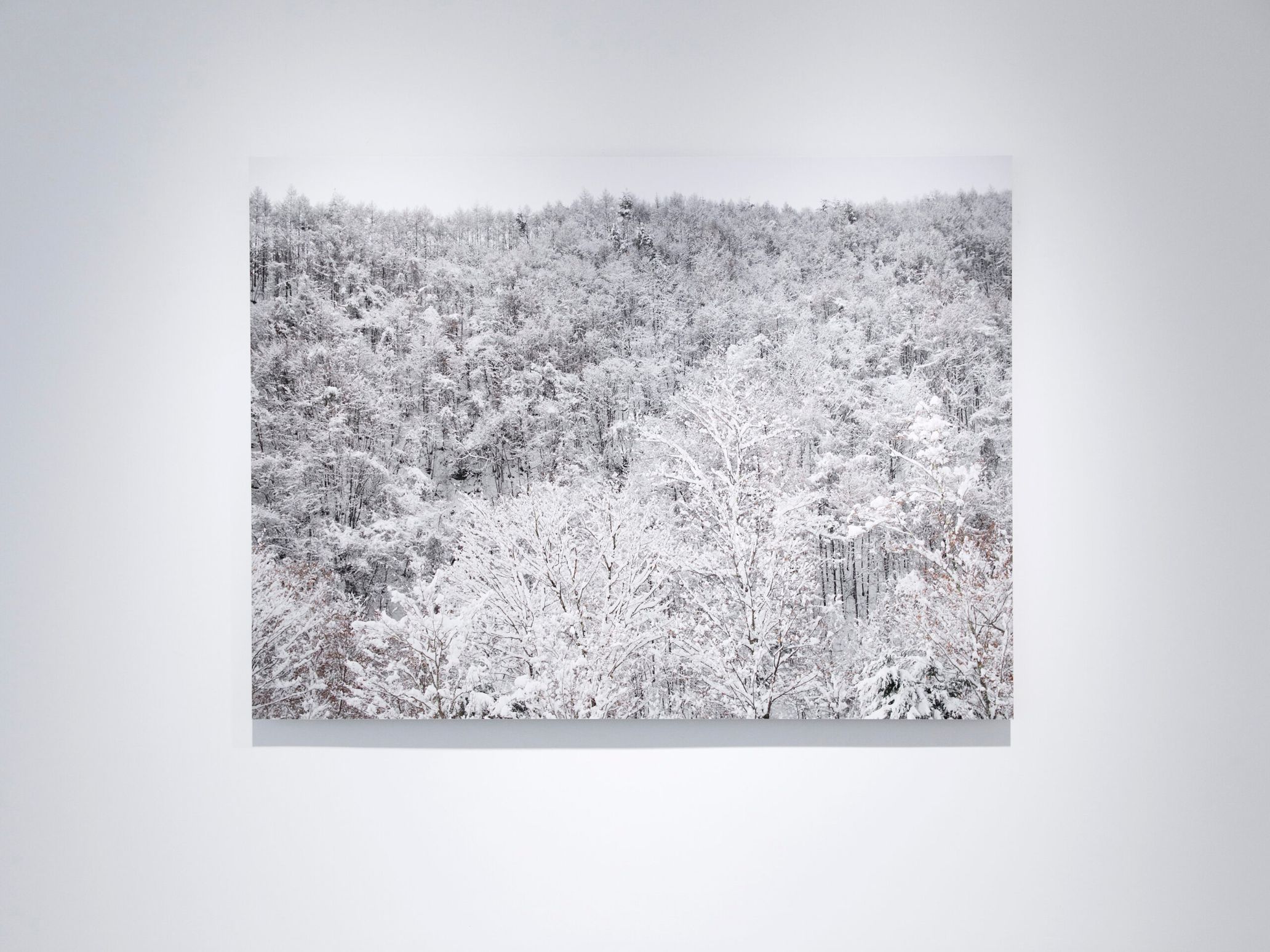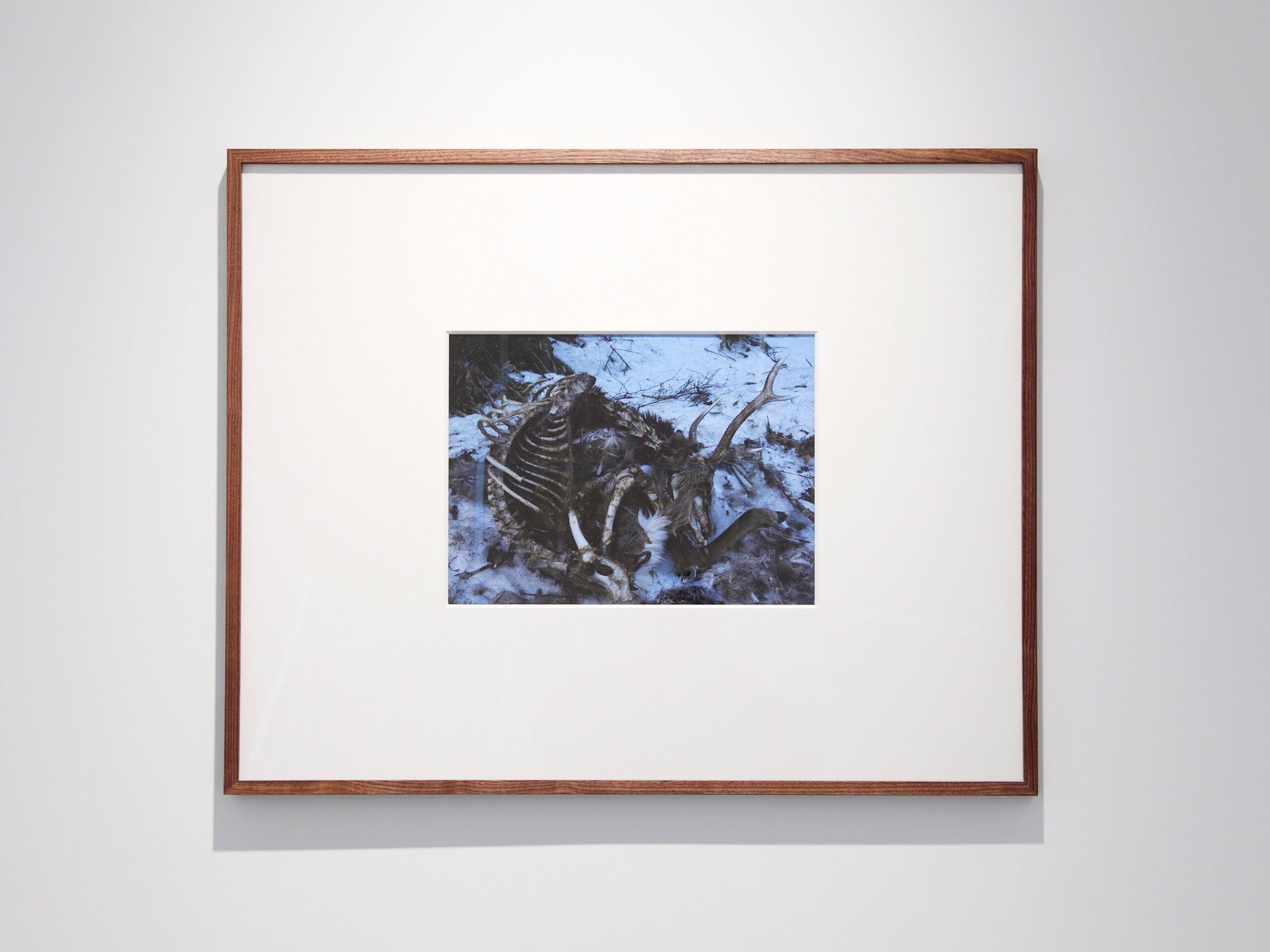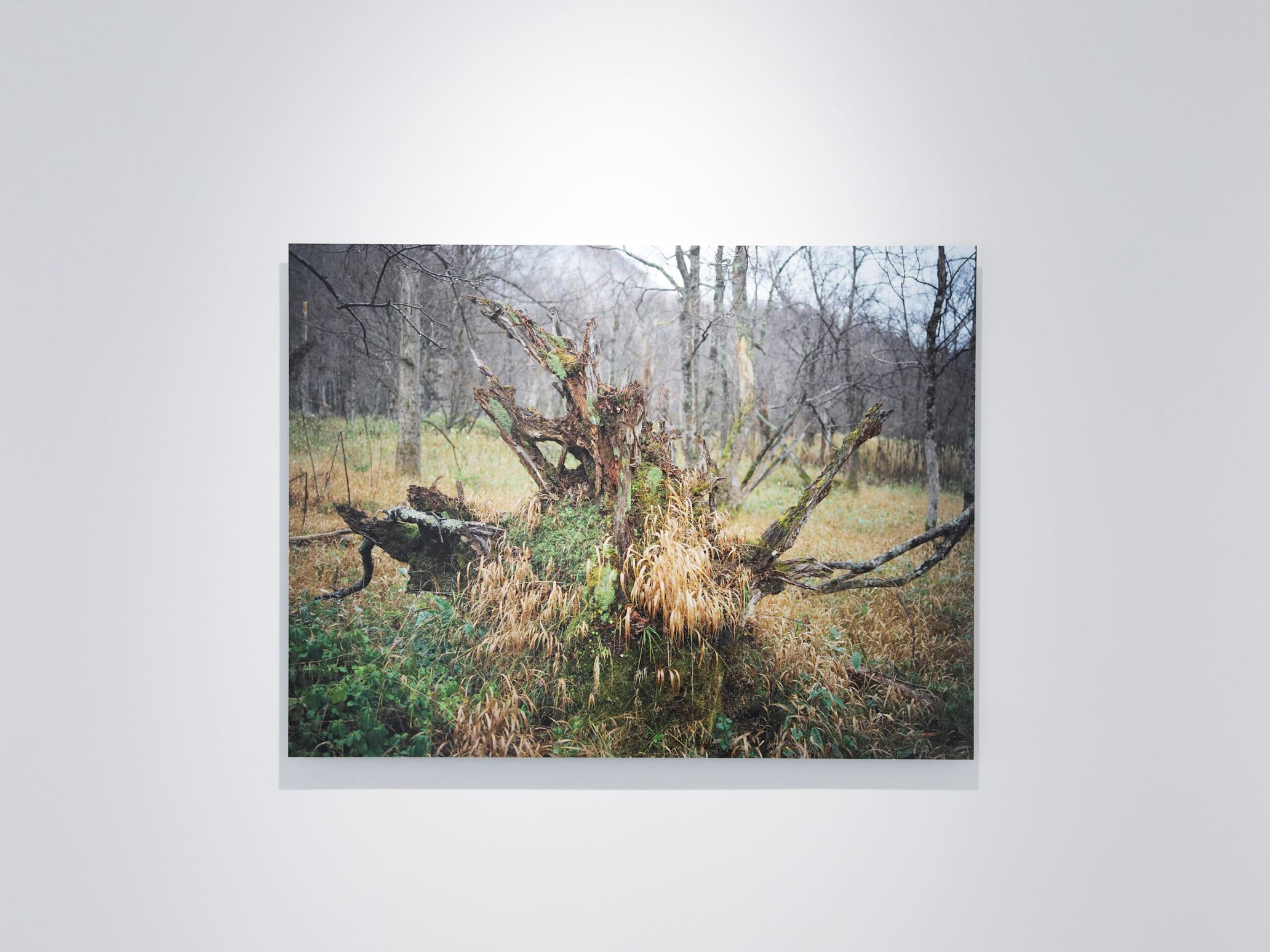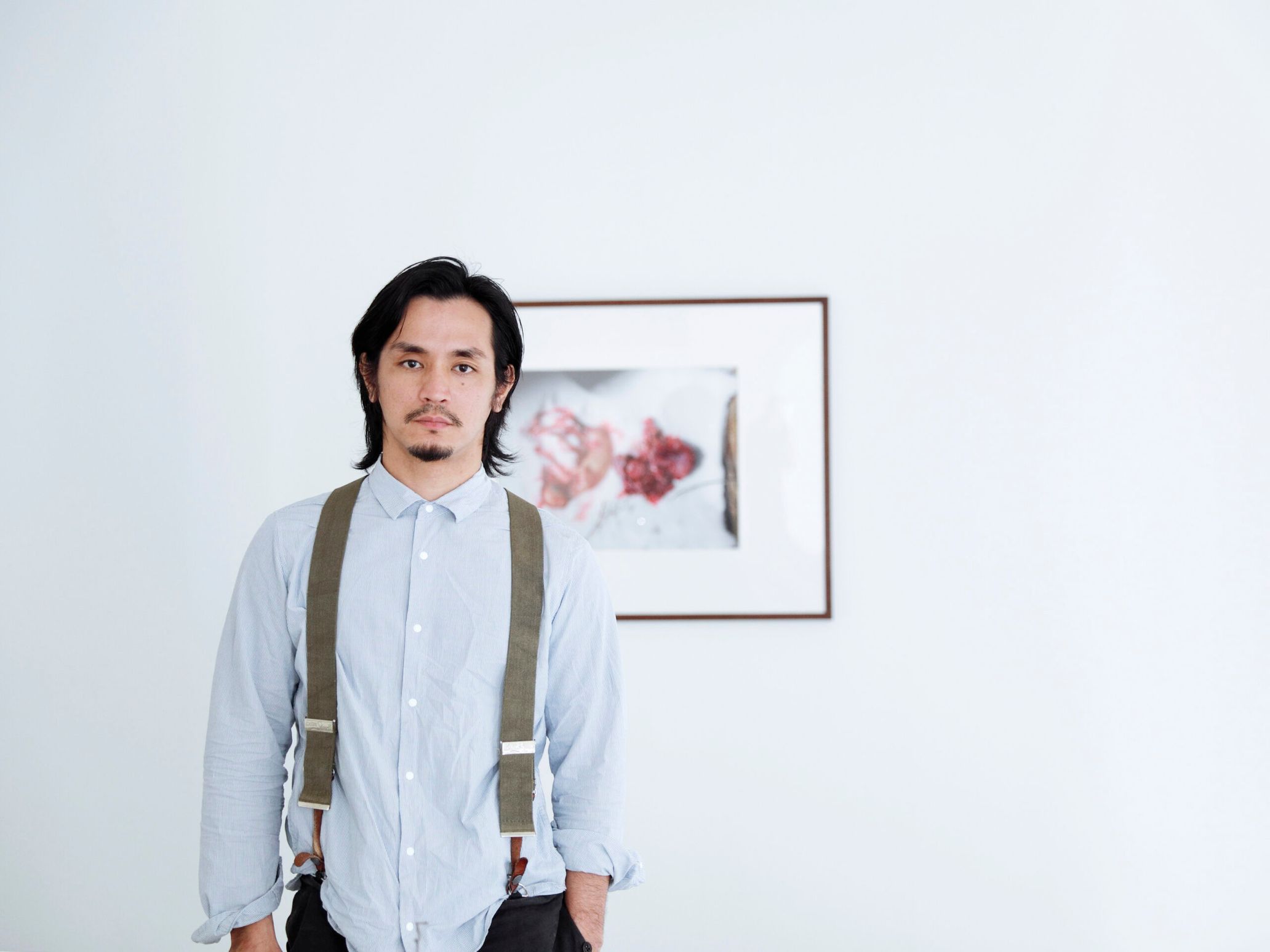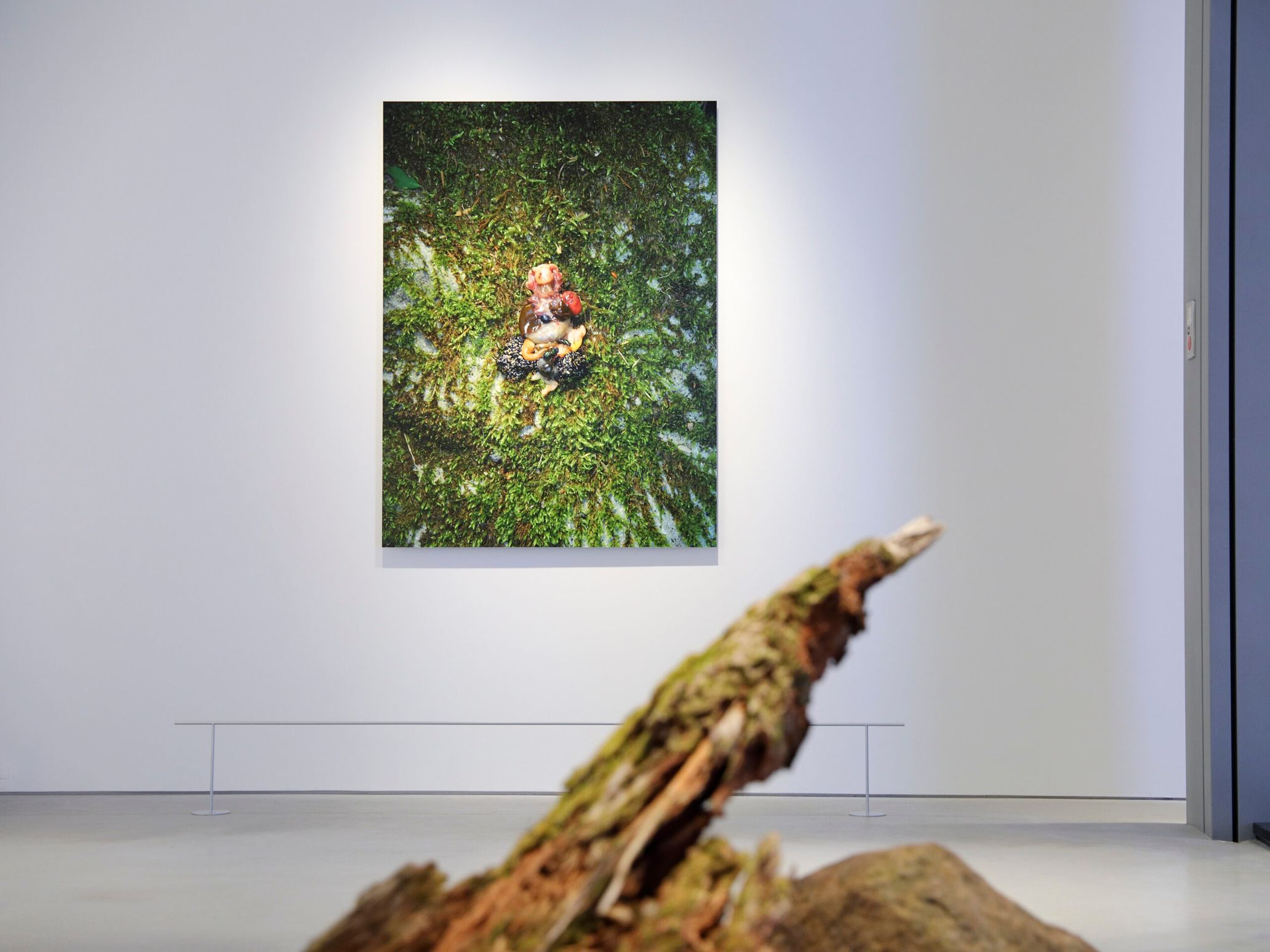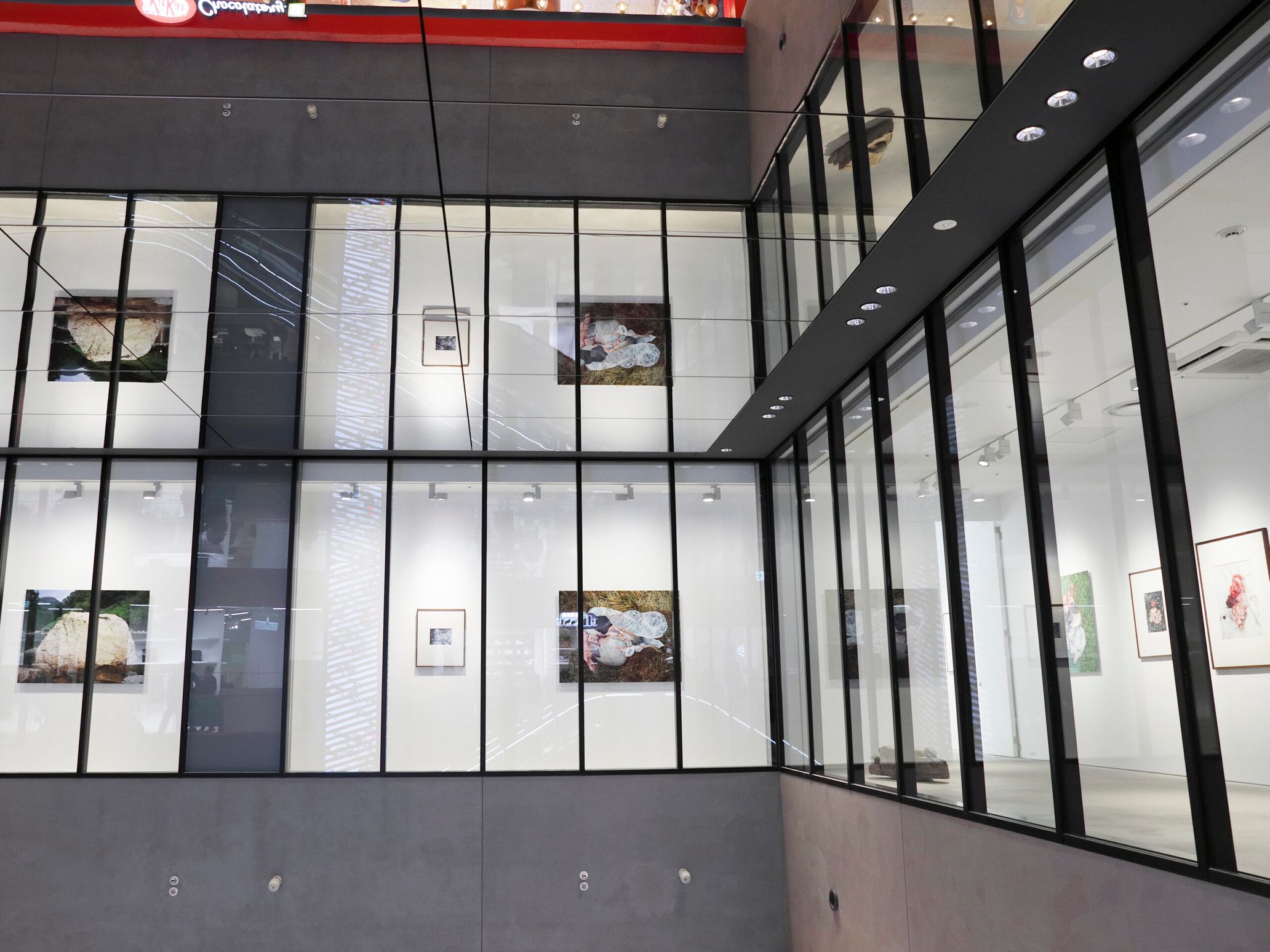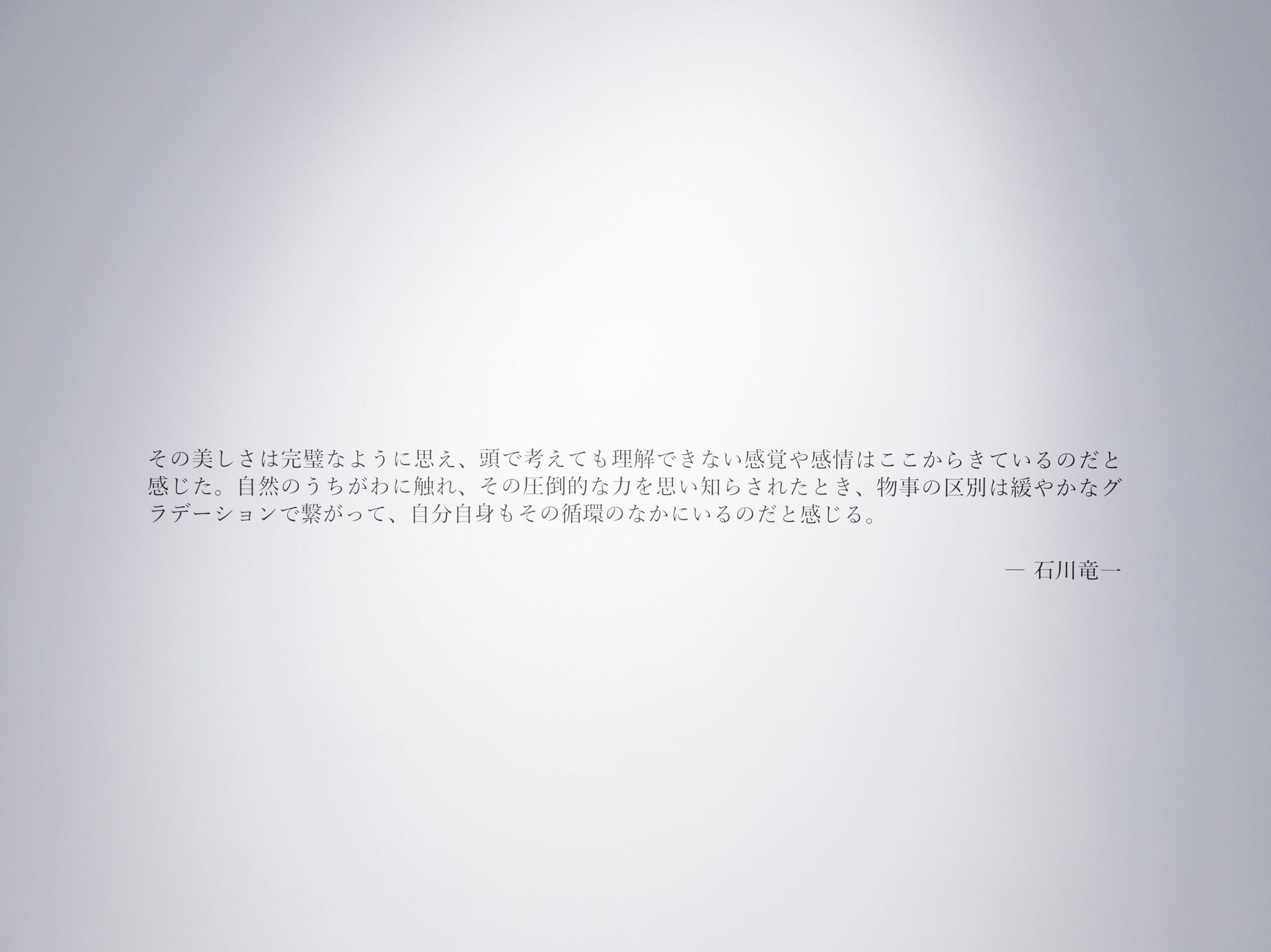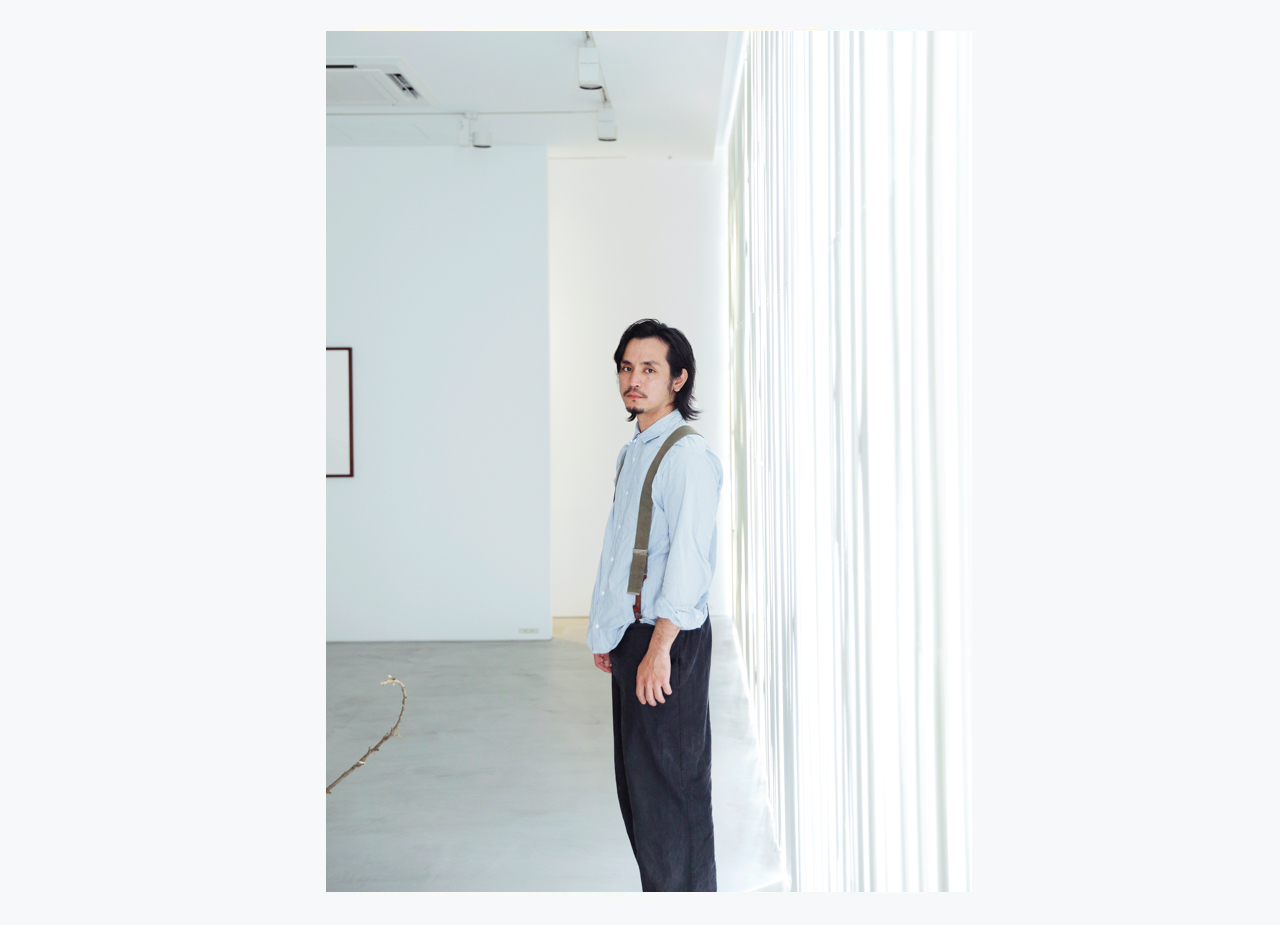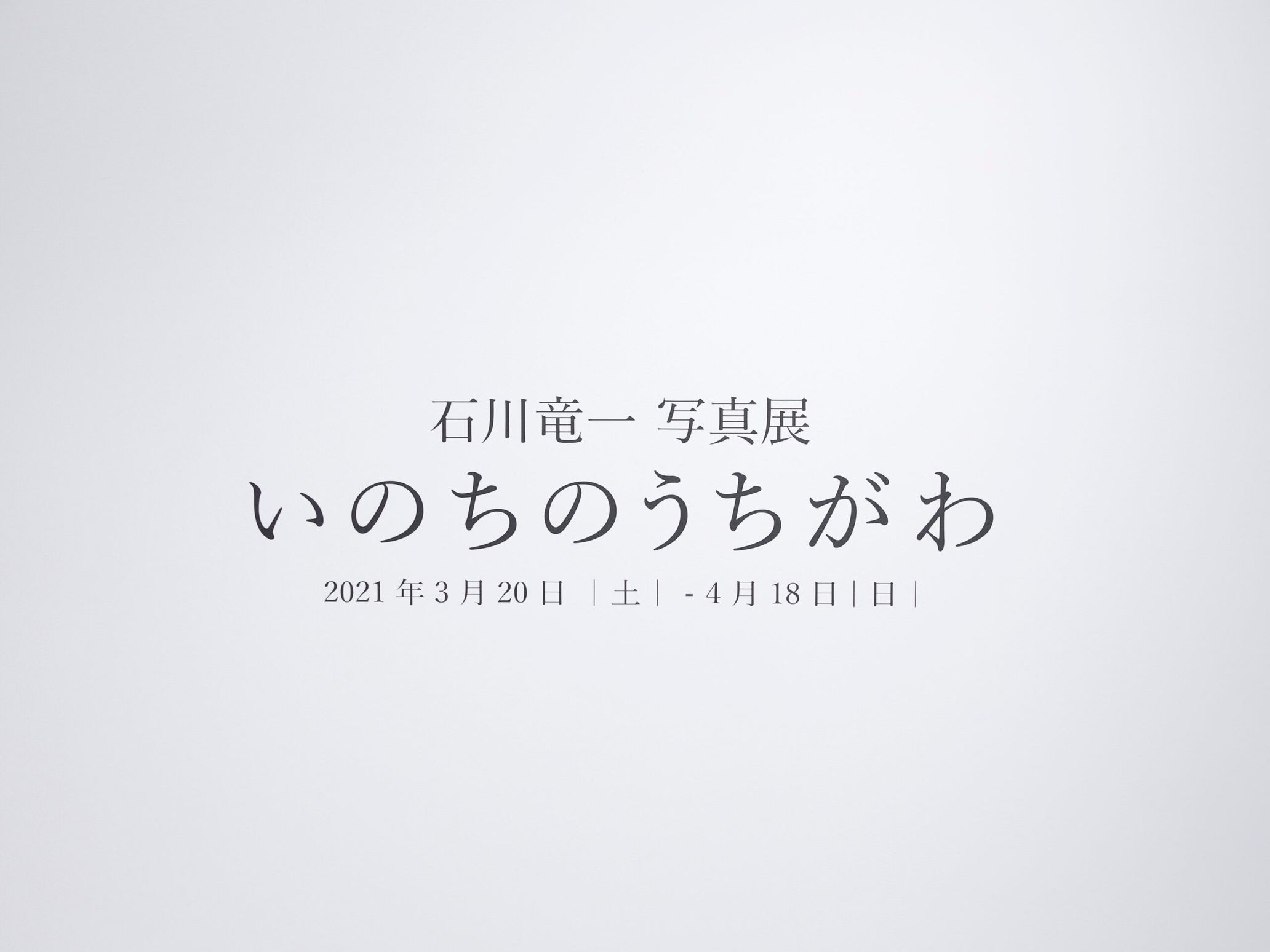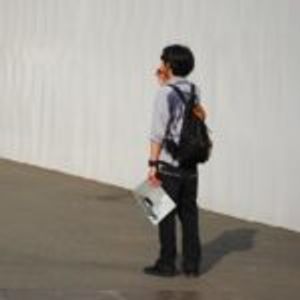Ryuichi Ishikawa is a photographer based in Okinawa, and has been capturing the raw atmosphere of people and indigenous lands. In 2014, he won an honorable prize at the Kimura Ihei Photography Award with his photo books okinawan portraits 2010-2012 and Zekkei no Polyphony. For his other photo book CAMP, he had dared to live in the mountains and forest to document bona fide appearances of the nature. And now, he is announcing his new photo book Inochi no Uchigawa [the solo exhibition under the same title is held at SAI Gallery in Shibuya until April 18th (Sun), and the book is published by Akaakasha]. His works entail fragments of the intrinsic to ‘eat and live’ that he witnessed and felt through his experience of participating in hunting and disassembling wild animals.
Valuing the attitude of facing things I cannot assimilate
ーーYou’ve captured the appearances of the nature by going and living in the mountains and forests with survival mountaineer Bunshou Hattori, for CAMP released in 2016. Is your latest photo book Inochi no Uchigawa in extension of your previous book?
Ryuichi Ishikawa (Hereinafter Ishikawa): Yes, indeed. Back when I was working on CAMP, I couldn’t figure out what I should be focusing on when I was in the nature, so I was constantly taking pictures of what came in my sight. But as I look back at my previous work, I feel like smattering of my latest work Inochi no Uchigawa has already been there.
(SLANT)
ーーSo, since then you’ve gained confidence in shooting in the mountains and forests?
Ishikawa: Not really. Even after the experience, I still don’t know enough about the mountains and nature; and it’s so harsh going in the mountains that I don’t even want to go back. However, I deem extremely important to confront things that are hard for me to assimilate. I believe hate and difficulties come from lack of understanding, so I want to keep trying until these negative feelings are gone. That’s why, even after I put out CAMP, I went to the mountains again asking Mr.Hattori to take me with him.
ーーYour latest book is mainly centered around the insides of wild animals, right?
Ishikawa: Mr.Hattori had offered me to join hunting instead of just being in the mountains with him. In the beginning, I was simply taking pictures, but then, after Mr.Hattori had caught a deer, he cut the abdomen and put the organs down on the snow ground. At that time, I was merely taking its picture as my normal procedure, but later when I actually laid my eyes on it, I was like “ew.”
It wasn’t its visual that got me, and it was the smell that was pervading the area. I don’t know how to describe in words, but as much as I wanted to look away and avoid it, I was turned on or felt a certain erotism. So, I’d decided to touch and take a picture of it.
ーーAnd I’m assuming that experience led to your latest craft.
Ishikawa: That wasn’t the entire reason. What I could say for sure is that taking pictures of the insides of the animals wasn’t my purpose. I just went to the mountains as usual, captured the sceneries as I would normally do, and when we went hunting, I took pictures of the animals as a part of the process.
ーーWhat kind of changes were born from being present at the hunting scene?
Ishikawa: To be honest, I have ambivalent feelings about slaughtering and eating animals. Yet, I normally eat meat, so I had to accept what I was seeing. I’m not a licensed hunter myself, so Mr.Hattori would hunt the animals, but I did what I can like cleaning up and tried to be conscious of my involvement in hunting.
ーーSo that means, you went to experience the crucial tactics to survive.
Ishikawa: Also, in the world of hunting, it’s normal to take out the animal organs and throw them out after taking their lives away. By doing so, the other wild animals would eat the organs and the cycle of nature is sustained. But I ate the livers and hearts as well as I felt sorry for them. I realized that it’s more significant eating what I had hunted by myself than eating the ones processed by other people—and simply speaking, the ones caught and dressed with my own hands are more relishing.
ーーAs you mentioned earlier, you joined hunting not only to take photos but to practice what’s imperative to survive.
Ishikawa: Obviously, I went to take photos, but when I was actually going in the mountains, I tried to forget my intention of creating works. So, I went in only when Mr.Hattori had asked me “I’m going to the mountains, do you want to join me?” or when we were genuinely out of food.
ーーThat’s some serious self-sufficient lifestyle there.
Ishikawa: Normally, I live poorly and can’t afford to buy beef at a supermarket [laughs]. So, only when I’m craving for meat, I would hit up Mr.Hattori and ask, “Are you going to the mountains any time soon?” [laughs].
ーーBy the way, when you shoot street snapshots or portraits, do you ever pay attention to the act of taking photos?
Ishikawa: Also, with snapshots and portraits, I always try not to heed the purpose of taking photos. I thwart myself to go out somewhere or do something just to shoot pictures. The thing is though, I can’t quite draw the line between work and delectation. I take photos because I’m interested and it’s what I like to do. Don’t you think it’s boring to live only to create works? At least it’s not what I signed in for.
What exactly are humans and nature trying to create!?
ーーThis exhibition Inochi no Uchigawa, mirrors your curiosity towards the insides of lives, but would you say the same fragments were in CAMP as well?
Ishikawa: I think so—I had pictures of fish and frogs at CAMP as well. Back then, when I saw the views, water, and stones, I had a hunch that they are close to the insides of animals. And this time, actually seeing the insides of animals reassured me that they look exactly like the views of nature. That lured me to explore the insides more.
ーーWhat do you mean by the organs and views resembling each other?
Ishikawa: For example, a deer’s organ and the texture of a stone, or compiled tree branches and the caul fat or veins of an organ, start to look like each other. As I shoot pictures concerning the balance, the two subjects merge and become a gradation that the tree or stone begin to look like it’s a part of the organ, and vice a versa.
ーーI see, it might be easier for people to understand if they actually see the pictures.
Ishikawa: It’s really mysterious. The animal organs and shapes of plants are natural gifts, but they are related to each other in shapes. Also, not limited to the things in nature, they begin to resemble inorganic substances created by humans like car engines or hose. As I think deeper, I start wondering: “What exactly are humans and nature trying to create!?”
ーーThere are photographs of the organs that were taken out from the hunted animals lying on the snow, rock and fallen leaves. Were these shooting locations decided beforehand?
Ishikawa: Not at all—I couldn’t decide in advance because we were never sure of when we would be able to hunt the animals. For instance, when we were walking all day trying to catch a deer, there was no guarantee that we would ever come across one. Also, since we were in places where people usually don’t go, it was extremely dangerous. Even if we did encounter an animal, we weren’t sure if we could strike the target, and even if we did, we had to schlep it back to dress it—so I couldn’t shoot pictures whenever I wanted to. Plus, the organs get dry or bloated with gas and change quickly if you let them sit for a while. There was really no time to think, so I had to be prompt, instinctive and spontaneous.
ーーHow many times did you go into the mountains?
Ishikawa: I went in about twenty times within the past five to six years, so not that frequent. As I mentioned earlier, I try not to go to the mountains for work, and I go in naturally as a part of my living. I would say I go in enough times that my meat consumption is about the same amount as the average individual consumption of meat.
ーーI’m sure it’s really tough going into the hunting area—were there any dangerous encounters?
Ishikawa: Once a deer appeared right in front of us and jumped trying to kick us, so we fought back with a wooden stick. I didn’t have a rifle, so it was really scary. Also, there was a time when a viper tried to attack us. These wild animals are scary enough but it’s also tough because once we’re up there it’s not easy to go back down.
ーーIn such situations and without focusing on the purpose to create works, how did you decide when or when not to hit the shutter?
Ishikawa: Regarding that part, I’m not so sure myself…. For this time, it would have made more sense if I took pictures of all the organs of the hunted animals so that I could show my commitment to what I’ve been saying about ‘not wasting every death’. But the truth is that I couldn’t shoot all of them. If you ask me “why?” I would say it’s because it was too cold or tough, and there are multiple excuses. I don’t think these photos can be captured deliberately by aiming like “I gotta take this one!”
ーーSo, you’d captured them by following your senses or instinct?
Ishikawa: There is a photo of a deer fetus at this exhibition. Of course, we didn’t know that the deer had a baby, and it was completely unpredictable. I was so shocked when the fetus came out, but I was told that it happens on a reg to the hunters. As I thought to myself, “I see, this is normal…” it sparked my curiosity that part of me wanted to study more since it’s there. When I actually saw it, I got to learn that the liver was big, but the stomach and intestine were very small as they had never been used yet. Anyway, most of the photographs are incalculable results.
ーーHas this always been your attitude towards shooting?
Ishikawa: I would say yes. When I did the shoot for CAMP, there were forest green tree frogs gathered to lay eggs, and a swarm of birds flew in pecking at them. The birds were trying to eat the eggs, but they were also attacking the frogs. As I witnessed the scene, I realized that animals are aware that they could get killed and eaten by other lives to live, but they could also be killed for other irrational reasons. Of course, I don’t think it’s right to justify such circumstance by concluding that is the nature’s law. I need to observe more from different perspectives and explore more ways of life that make these organisms suited to survive. I want to study more seriously about nature.
ーーYou’ve mentioned in your message for this exhibition: “Getting in touch with the insides of the nature and when awed by its power, the distinctions of matters coalesce into a mellow gradation, and I feel as I’ve became a part of the cycle.” It’s like you can’t defy the nature’s cycle.
Ishikawa: In the collection of this exhibition, there is a photo of a deer skeleton that has decomposed—when I saw it, I thought that dying in the nature might be the same as getting killed by humans for food.
Also, when I caught a rainbow trout, I found a stink bug inside its stomach. There should be more scrumptious and nutritious bugs or plants out there, and it got me question, “Why a stink bug?”—It’s so odd [laughs].
And humans, too—I wonder like, “What are we really supposed to do?” or “Someday, are we all going to live only on supplements?” But I honestly think wild meats taste better than domesticated meats. And I’ve tried various wild animals, not only deers but crows and frogs, too. They’re actually quite delicious, so if you ever have a chance, I highly recommend.
Facing the nature changed my awareness towards eating
ーーDo you normally think about life and death like that?
Ishikawa: I used to think a lot about these things before, as I’m essentially a gloomy person [laughs]. But it wasn’t like I was getting into deep, and I wouldn’t say I’ve ever deepened my knowledge in that field.
ーーYou didn’t go into the mountains with the purpose to shoot pictures, but you were able to accomplish your work Inochi no Uchigawa as a photographer. What have you gleaned or discovered through this experience?
Ishikawa: First, my conscience changed since I met Mr.Bunshou Hattori. Up until then, I had no interest and no feeling in nature. And I became more mindful of eating through facing nature. It goes without saying but having a mind to appreciate food is vastly important. I still like junk food, yet I used think that I can eat whatever I like if it tastes good and wasn’t paying attention to what I was consuming. However, since I began taking food seriously, I started questioning myself, “Why is it important?” I think it’s the same as facing the idea of living.
I go into the mountains as I think about these things. But in the mountains, I could face death anytime if I miss my step and fall. As I experienced danger multiple times, I’ve realized what it truly means to be alive.
ーーAnd isn’t it meaningful to present the aggregation of your experiences at SAI Gallery located in the center of Shibuya, Tokyo?
Ishikawa: I’m so grateful that my works are exhibited in the gallery located inside the commercial building, and that understands my ideas and sensibility. Once Mr.Hattori had told me: “When we are in the nature, we are directly involved with life and death, however, it’s in fact the same when we are in the middle of the city”—which were remarkable words. When we are out in the city, we never know when we might get involved in an accident and can’t say that mountains are dangerous and the city is safe. So, I understand thoroughly what Mr.Hattori was implying.
ーーI believe people would be able to perceive those things through the exhibited photos.
Ishikawa: But I’m sure there will be people who’ll find them discomforting. Because those sentiments can’t be understood by merely looking at those photos. If I were a guest, I would definitely think: “Ryuichi Ishikawa is pretending he knows it all—what a shithead!” [laughs]. So, I want people to be honest with their feelings of discomfort. That grants me an opportunity to think more deeply about myself. I’d be happy for people to go home with the discomfort.
ーーI heard you still go to the mountains—do you think it’s going to be your lifework?
Ishikawa: I don’t think I could get deeply committed to it. It might become my lifework if I were able to go in by myself, but I still need Mr.Hattori or else I can’t do it on my own. Yet, I do wish for my lifestyle to become embedded in nature.
Ryuichi Ishikawa
Born in 1984 in Okinawa. In 2010, he became an apprentice with photographer Tetsushi Yuzaki. In 2011, he joined the Tomatsu Shoumei Digital Photograph Workshop. In 2012, he won the 35th New Cosmos of Photography Award with his work okinawan portraits. In 2015, he won the 40th Kimura Ihei Award, and the Photographic Society of Japan Newcomer’s Award. He has published multiple photo books including okinawan portraits 2010-2012, Zekkei no Polyphony, adrenamix, okinawan portraits 2012-2016 (all the above published by Akaakasha), and CAMP (published by SLANT).
Instagram:@zekkeisha
■Inochi no Uchigawa
Date: 〜 April 18th
Venue: SAI
Address: 6-20-10 RAYARD MIYASHITA PARK South 3F, Jingumae Shibuya-city, Tokyo
Time: 11:00〜21:00
Closed: none
Entrance fee: free
https://www.saiart.jp/
Photography Shinpo Kimura
Text Analog Assassin

